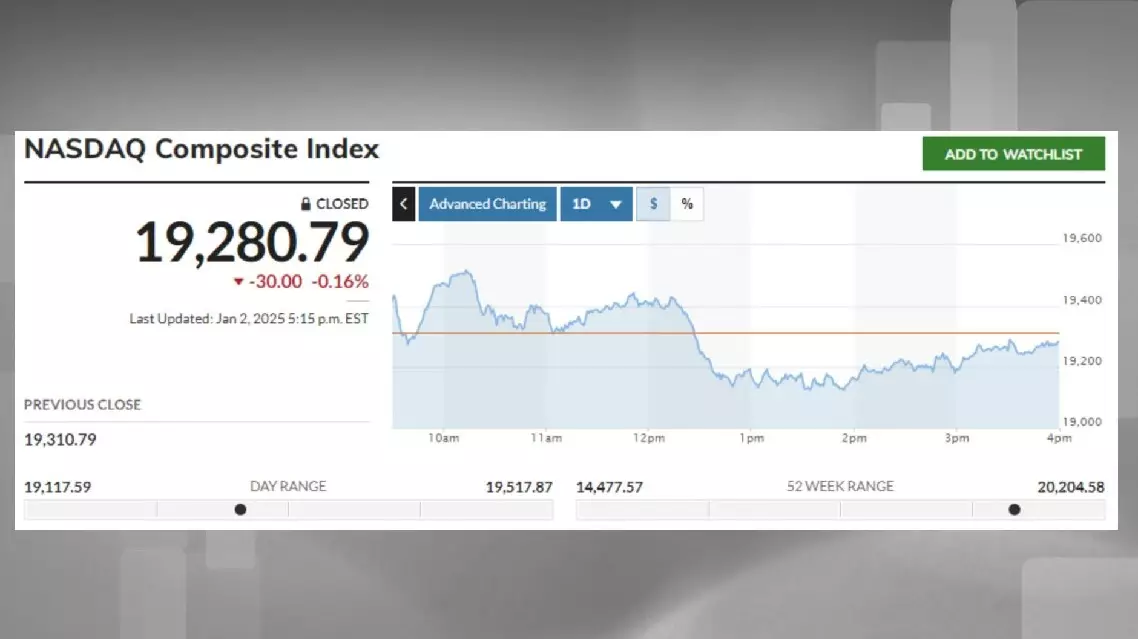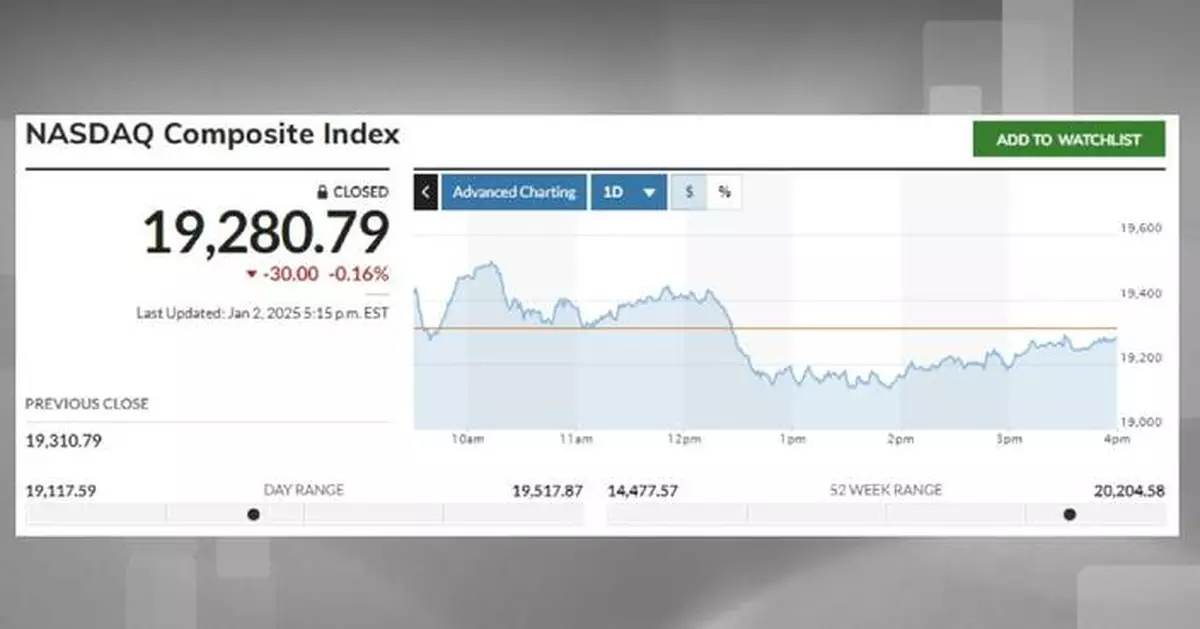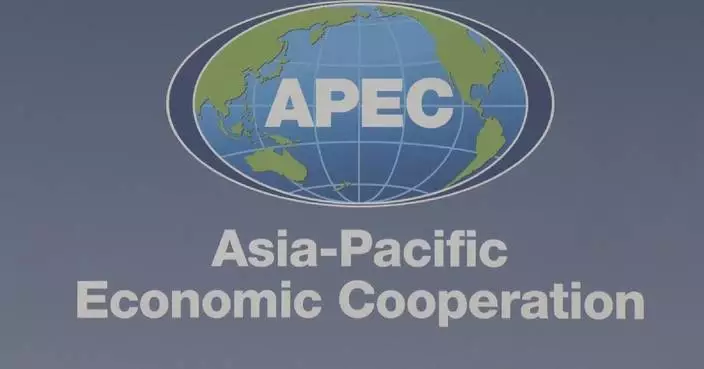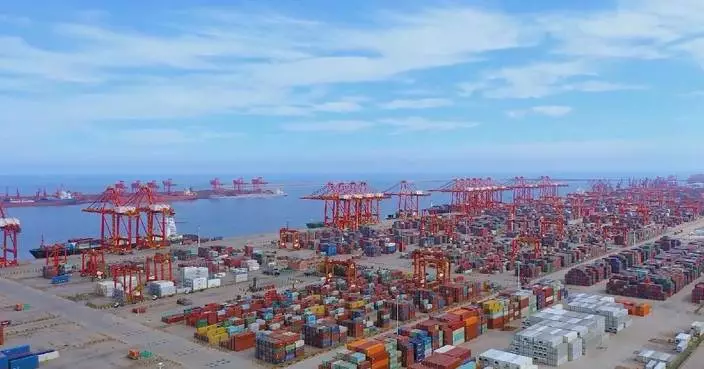U.S. stocks ended lower on Thursday, extending the late-2024 slump into the first trading day of 2025.
Despite early gains that saw the Dow Jones Industrial Average rise over 300 points, the Dow fell by 151.95 points, or 0.36 percent, to 42,392.27, logging a 700-point intraday swing from high to low. The S and P 500 sank 13.08 points, or 0.22 percent, to 5,868.55. The Nasdaq Composite Index shed 30.00 points, or 0.16 percent, to 19,280.79.
Seven of the 11 primary S and P 500 sectors ended in red, with consumer discretionary and materials leading the laggards by dropping 1.27 percent and 1.14 percent, respectively. Meanwhile, energy and utilities led the gainers by going up 1.04 percent and 0.73 percent, respectively.
Technology stocks weighed heavily on the market. Apple dropped 2.62 percent, while Tesla fell 6.08 percent after reporting an annual decline in deliveries for 2024.
Adding to Tesla's challenges, a Cybertruck loaded with fireworks mortars and fuel canisters exploded in Las Vegas on Wednesday, resulting in one fatality.
On the other hand, chipmaker Nvidia provided a bright spot, rising almost 3 percent and tempering the broader sell-off in Big Tech.
U.S. bond yields added to the market's turbulence. The benchmark 10-year Treasury yield briefly topped 4.6 percent before retreating to 4.559 percent as of 16:15 EST.
The dollar index, which measures the greenback against six major peers, gained 0.84 percent to 109.394 at 15:00 (2000 GMT).
In late New York trading, the euro dropped to 1.0251 U.S. dollars from 1.0358 dollars in the previous session, and the British pound decreased to 1.2369 dollars from 1.2516 dollars in the previous session.
In terms of crude oil futures, overseas investors remain upbeat about the prospect of more proactive macroeconomic policies from the Chinese government this year, expecting that oil consumption demand will grow accordingly.
Oil prices climbed on Thursday.
The West Texas Intermediate for February delivery gained 1.41 U.S. dollars, or 1.97 percent, to settle at 73.13 dollars a barrel on the New York Mercantile Exchange. Brent crude for March delivery increased 1.29 dollars, or 1.73 percent, to settle at 75.93 dollars a barrel on the London ICE Futures Exchange.
As for precious metals, factors such as geopolitical risks and global trade uncertainties pushed international gold prices up by more than 1 percent on Thursday.

U.S. stocks close lower, dashing rebound hopes


















































